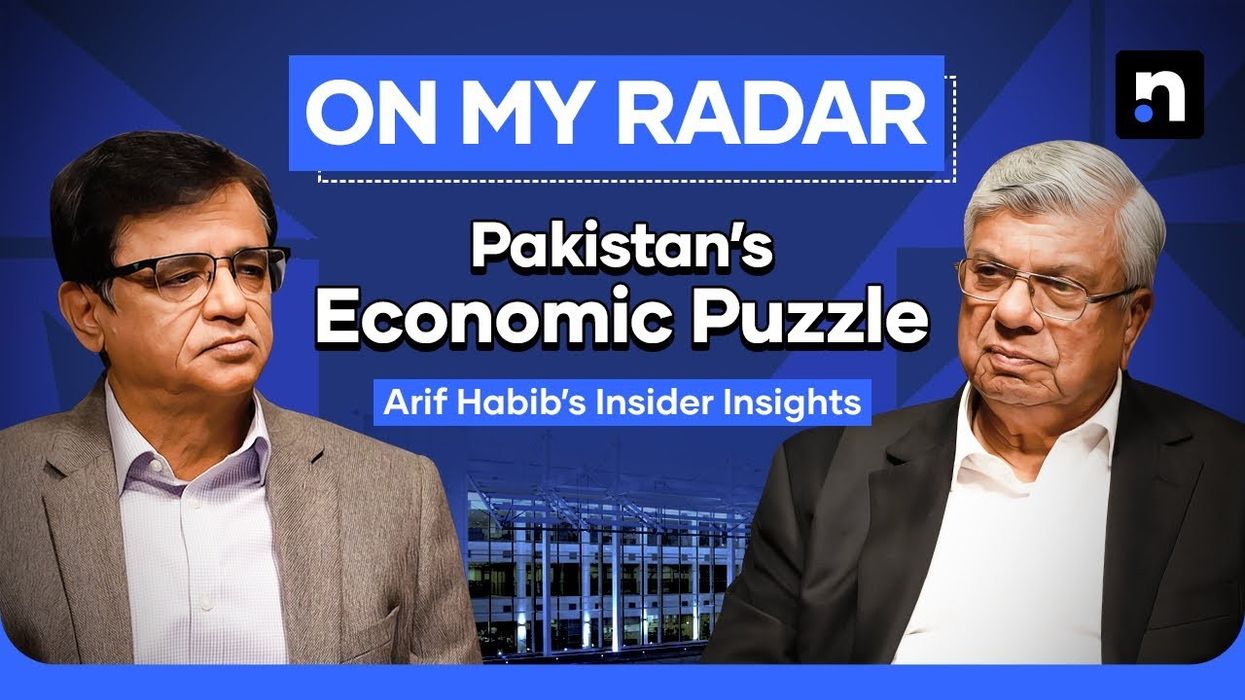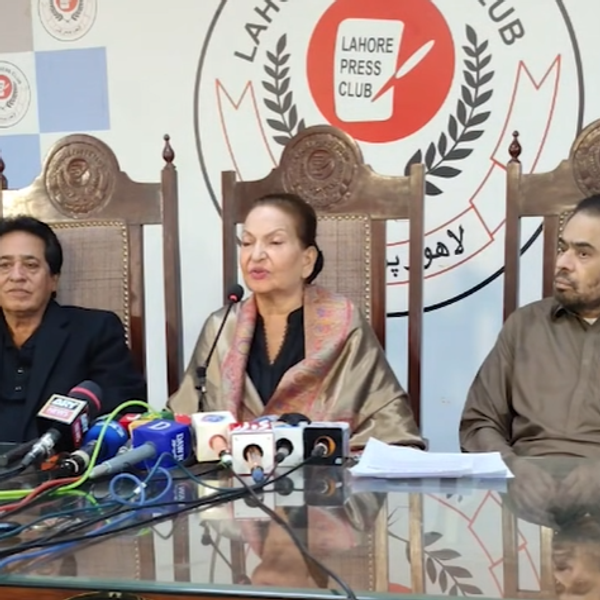Arif Habib reflects on stock market evolution, privatization, and Pakistan's economic policy
Prominent industrialist says nationalization drove investors away in a podcast with Kamran Khan, leaving Pakistan’s economy struggling for decades
News Desk
The News Desk provides timely and factual coverage of national and international events, with an emphasis on accuracy and clarity.
Prominent industrialist Arif Habib, chairman of the Arif Habib Group, shared insights on Pakistan’s economic evolution, highlighting the impact of nationalization, stock market reforms, and privatization failures in a podcast with Kamran Khan.
Habib recalled how his elder brother, a tax expert in a shipping company, was drawn to the stock market in the 1970s. Observing the Karachi Stock Exchange from the visitor’s gallery, he realized that brokerage was the most secure business, earning commissions regardless of market fluctuations.
“My brother prepared me for this business,” Habib said. With just PKR 35,000, they purchased stock market membership for PKR 32,000, a telephone booth for PKR 2,500, and a telephone for PKR 500. From those modest beginnings, the family’s brokerage firm expanded into one of Pakistan’s leading financial conglomerates.
Nationalization’s impact
Habib described how nationalization in the 1970s drove investors away, stalling Pakistan’s economic momentum. “Investment dried up as businesses were taken over without fair compensation,” he said. Many business families left the country, leading to an economic downturn from which Pakistan has yet to fully recover.
He noted that Pakistan was an economic model in the early 1960s, but after nationalization, industries declined, affecting businesses and investor confidence.
How leadership shaped the stock market
Discussing stock market growth, Habib highlighted the 1990s as a turning point. Nawaz Sharif’s government opened the stock market to foreign investors, introducing corporatization and research-based investment.
“Research became essential as we worked with foreign investors,” he said. The market performed well in the early ‘90s, but modernization peaked under Pervez Musharraf’s administration, with the introduction of computerized trading and the Central Depository System.
He recalled how, in 1991, the market was temporarily shut down after handling a record 7 million shares in a day. By 2003-04, with automation, daily turnover exceeded 1 billion shares.
PSM privatization: A missed opportunity
Habib described the failed privatization of Pakistan Steel Mills as a setback for economic reform. A consortium including Saudi investors and Pakistani business groups had won the bid, but political pressure led to its cancellation.
“When we won the bid, we felt proud, but media coverage made it seem as if we had occupied Kashmir,” he said. Competitors spread misinformation, and the Supreme Court ultimately annulled the deal.
Habib argued that the failure to privatize PSM resulted in financial losses and an inefficient state-owned enterprise burdening taxpayers.
The challenge of a documented economy
Habib pointed out that while documentation benefits Pakistan’s stock market, the undocumented sector—including real estate and currency trading—creates unfair competition.
“Our market is fully documented, yet we compete with undocumented sectors,” he said. With cash transactions restricted in the stock market, growth has slowed, but in the long run, documentation will help economic stability.
The role of real estate in economic growth
Habib emphasized the need to separate real estate trading from development. He called plot trading a “parking lot for black money” and urged policies that incentivize development instead of speculation.
“If someone buys land and builds on it, some tax should be refunded to encourage development,” he suggested. He also noted that mutual funds, insurance companies, and banks now dominate the stock market, making it more stable.
Addressing Pakistan’s energy crisis, Habib said independent power producers (IPPs) were wrongly blamed for high electricity tariffs.
“The real issue is demand miscalculation,” he explained. Pakistan’s power generation capacity is 33,000 megawatts, but transmission lines can only handle 22,000 MW, while consumption remains around 13,000 MW.
“If demand reaches 22,000 MW, tariffs could drop by PKR 15 per unit,” he estimated. He suggested debt reprofiling for IPPs, which could reduce power costs by PKR 3.5 per unit.
Habib advocated for including the construction sector in Pakistan’s Special Investment Facilitation Council (SIFC).
“Construction is the second-largest employer and supports 60 industries,” he said, arguing that boosting this sector could increase GDP and tax revenues.
He cited the previous government’s incentives for affordable housing as a positive step but acknowledged that rising interest rates and policy inconsistencies had hindered progress.
“If I were prime minister, I’d ensure the construction sector thrives,” he said. “It doesn’t seek tax breaks—just fair treatment.”
Policy clarity
Habib criticized Pakistan’s inconsistent policies, saying unclear taxation and broken promises deter investment. He pointed to the army chief Syed Asim Munir’s appeal for overseas Pakistanis to repatriate funds, noting that investors need guarantees before bringing money back.
“People want to invest, but they need a clear pathway,” he said, adding that sudden tax measures like the windfall tax discourage economic participation.
Habib urged the government to rebuild investor confidence through consistent, transparent policies to unlock economic growth.











Comments
See what people are discussing